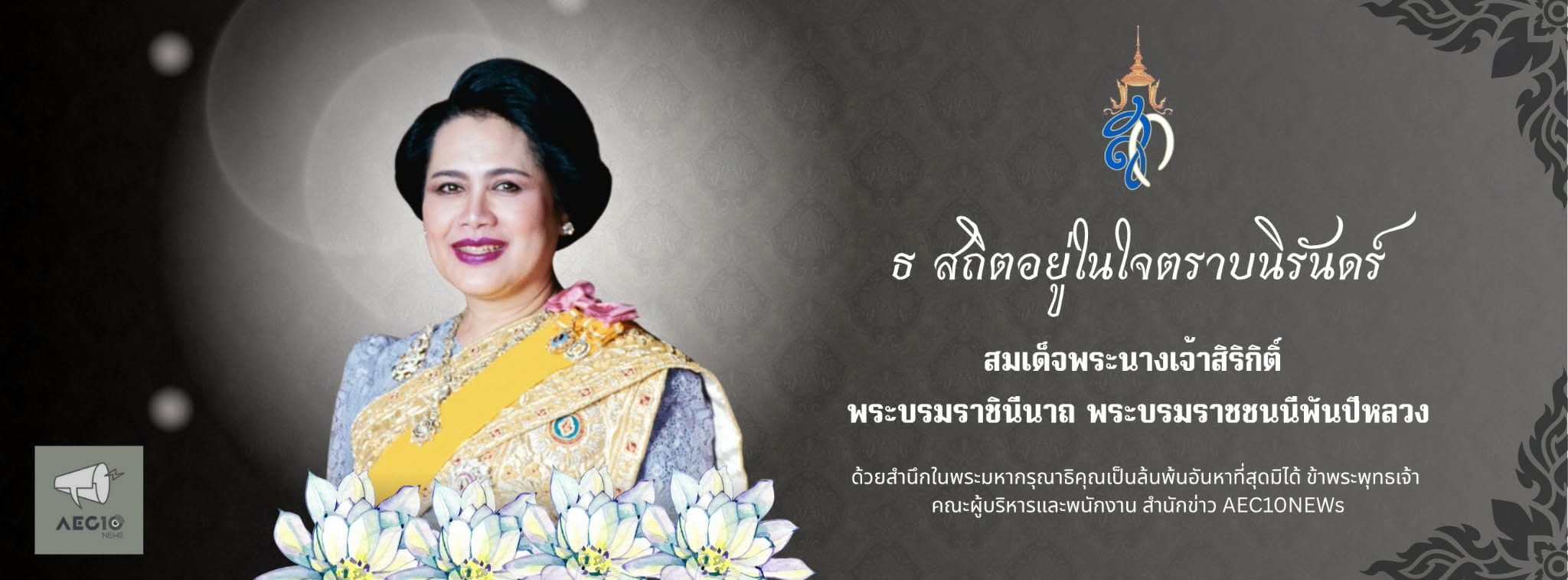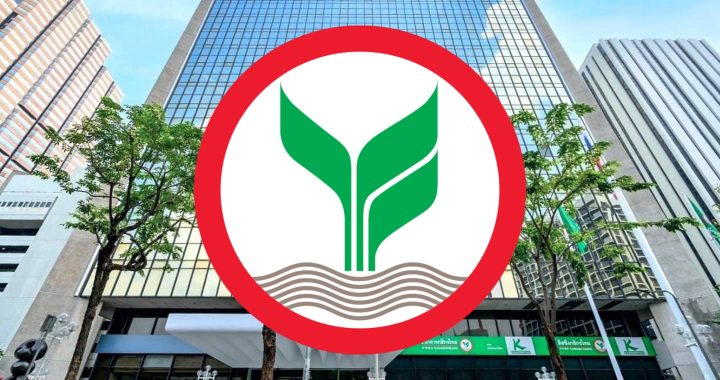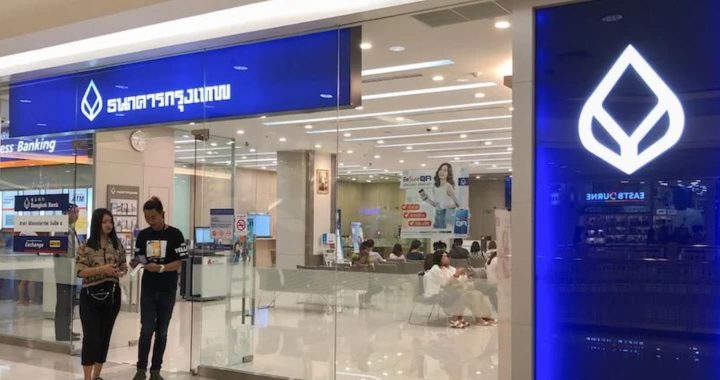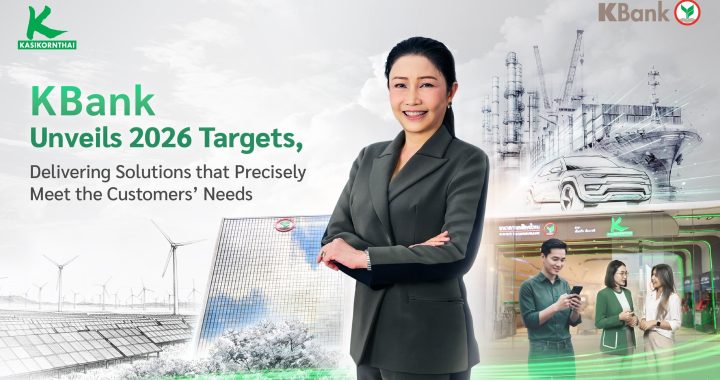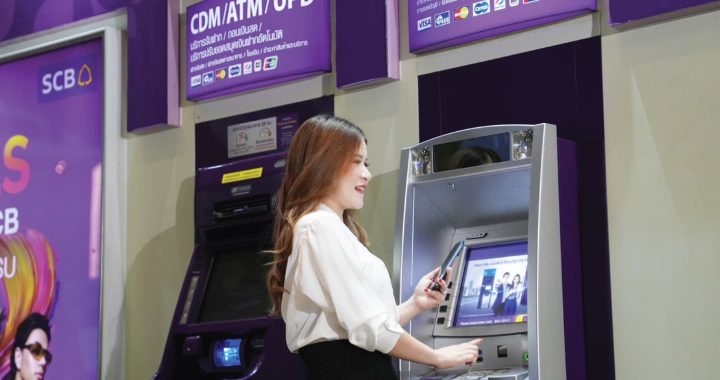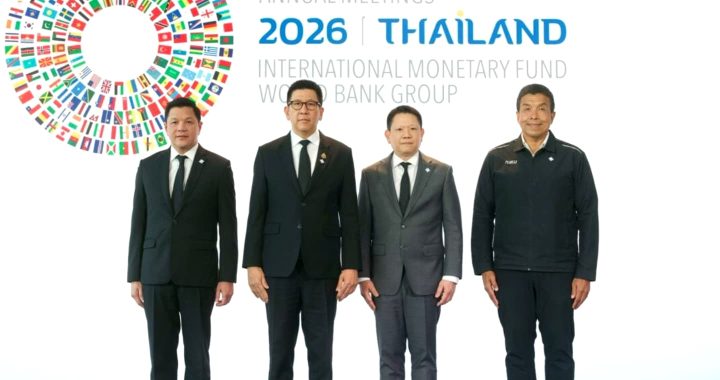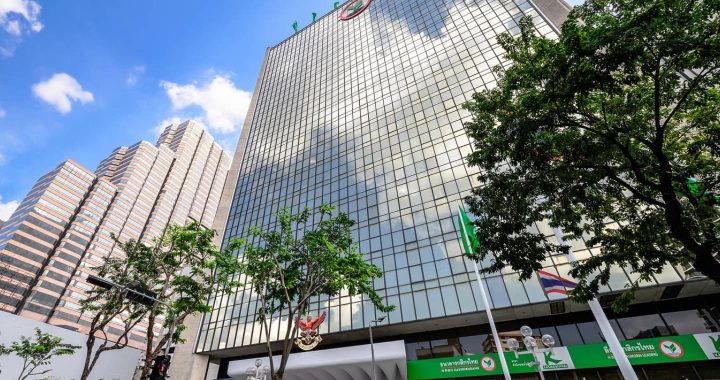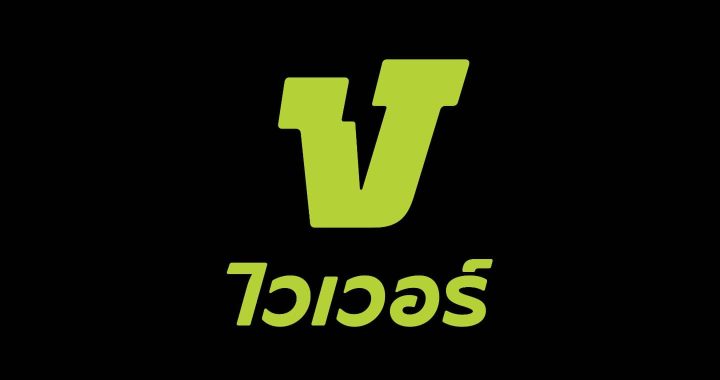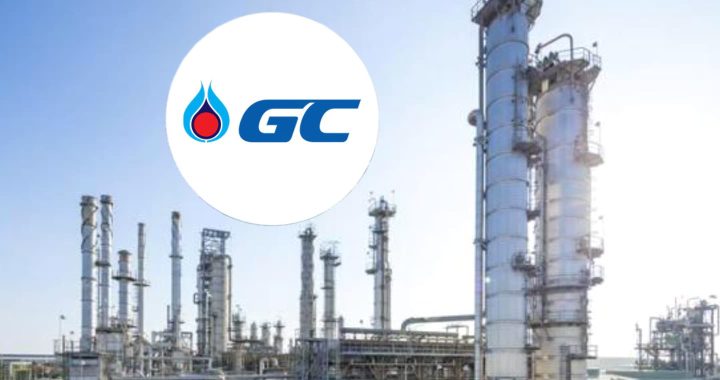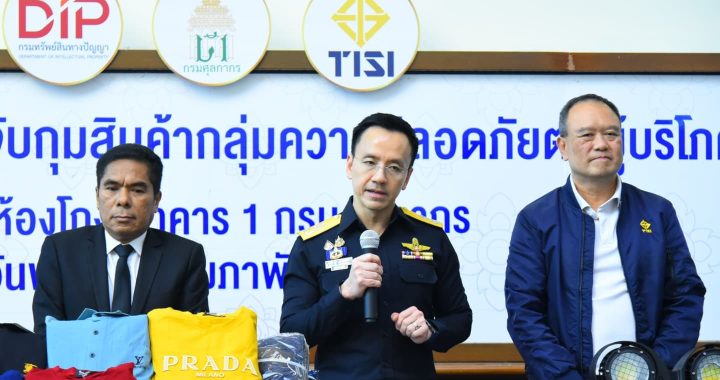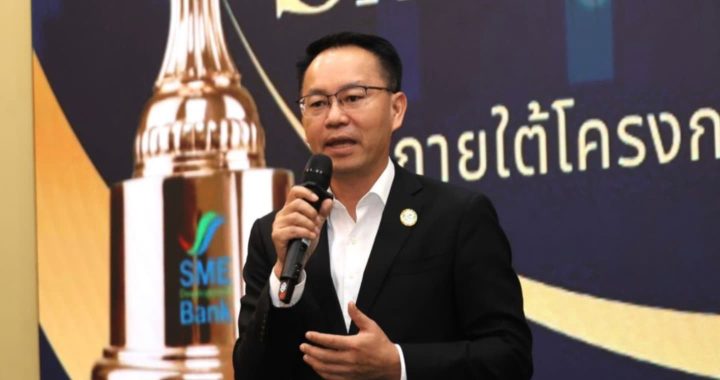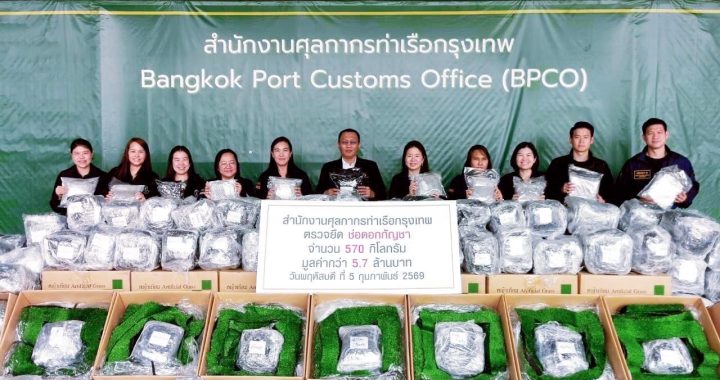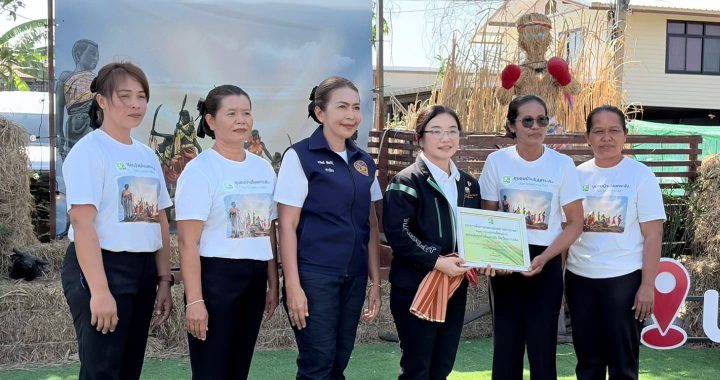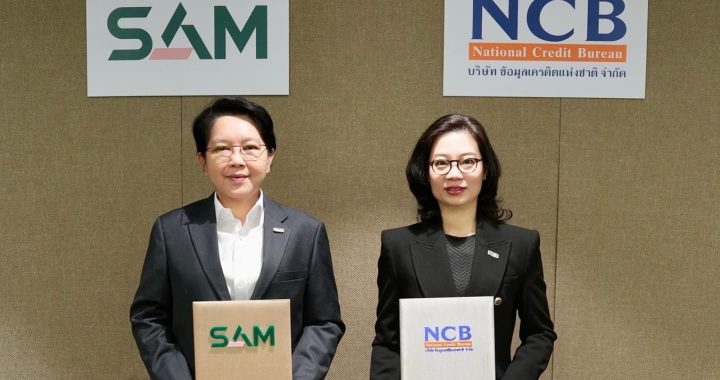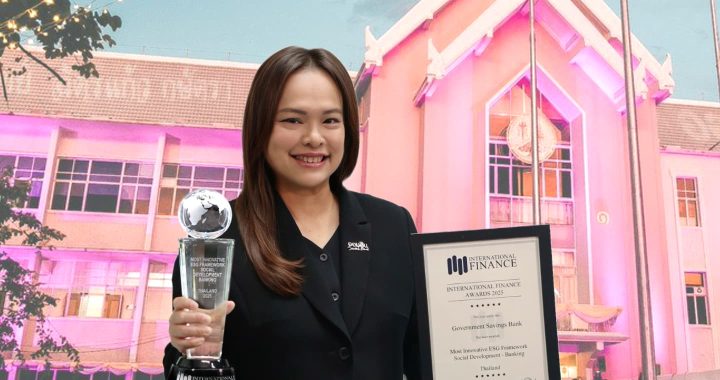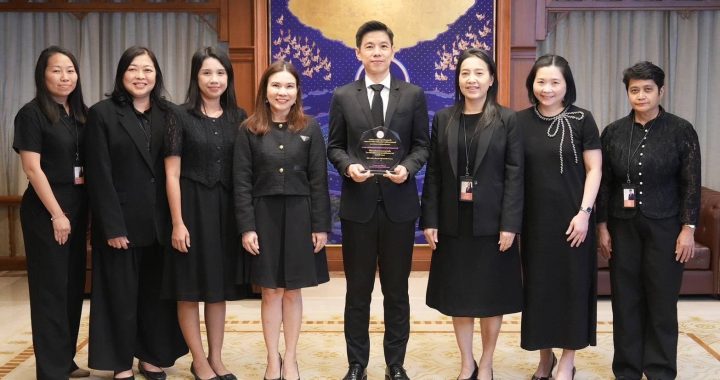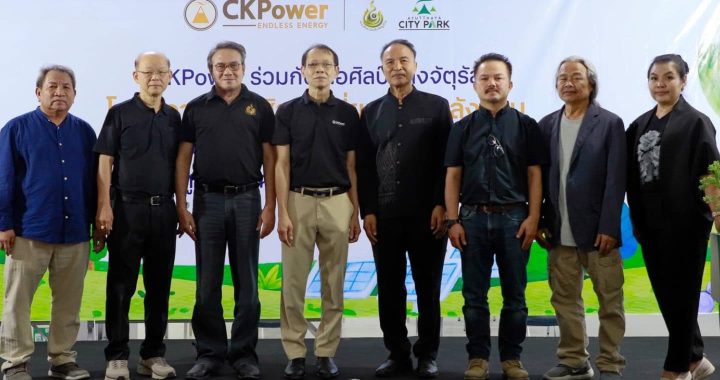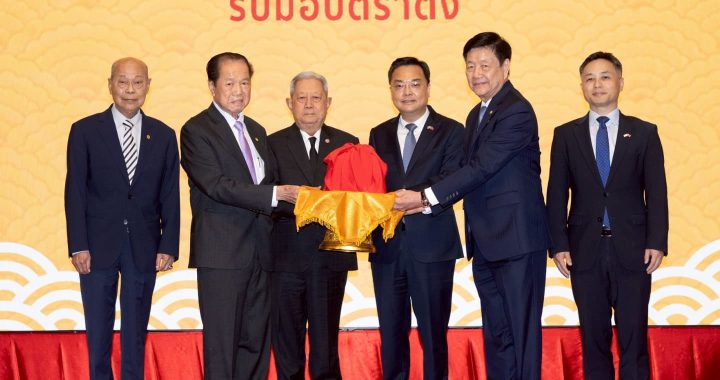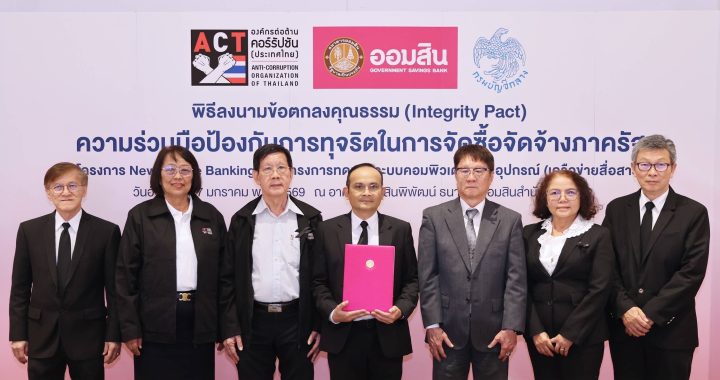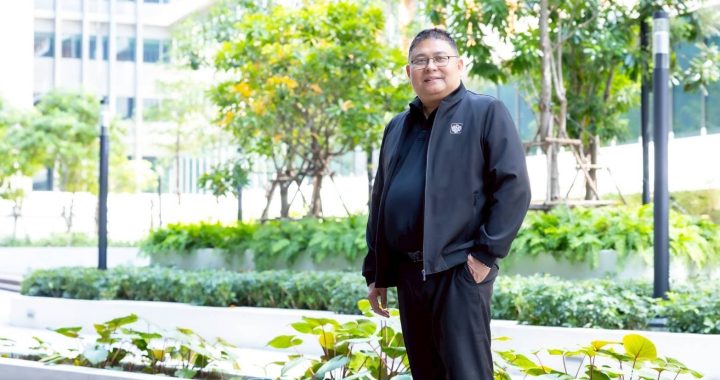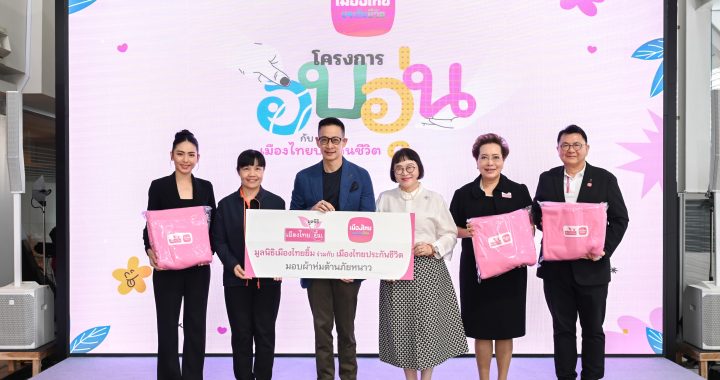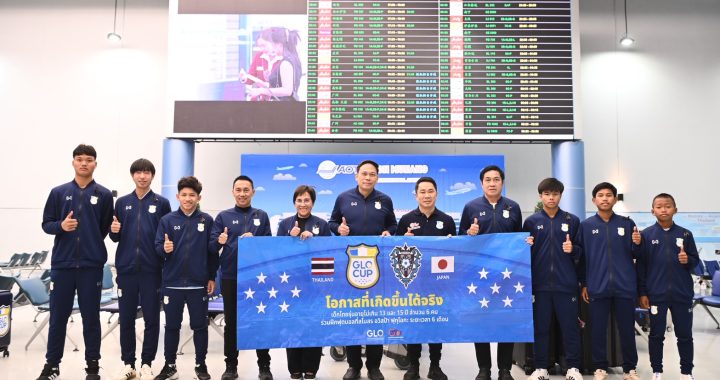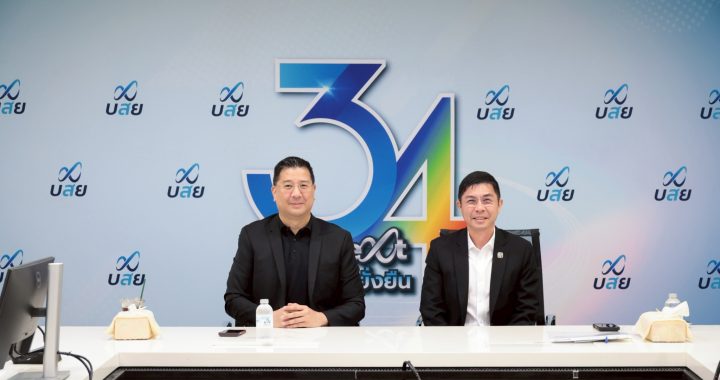KBank aims to become ESG leader among banks in Southeast Asia

KBank targeting sustainable funding worth Baht 200 billion and loans to 1.9 million small-pocket customers for improved access to financing
Guided by the ESG strategy, KASIKORNBANK (KBank) seeks to empower its customers and Thai businesses in the drive towards a sustainable economic system. Determined to be an ESG leader among banks in Southeast Asia, the Bank has reimagined its strategic imperatives while bolstering its customers’ capabilities during the transition to a net zero economy. KBank has thus far granted sustainable financing and investment worth more than Baht 16 billion, and intends to achieve Baht 200 billion in sustainable funding within 2030. As part of its endeavors to advance the Thai society, the Bank has lent more than Baht 23 billion to more than 500,000 small-pocket customers, as of September 2022, for their improved access to funding sources, while also expecting to offer financing to 1.9 million of this group of clients by 2025. Meanwhile, all project finance and commercial loans for medium and large enterprises have been processed through ESG risk assessment procedure. KBank is now ready to foster synergy and collaboration within the ecosystem for the sake of sustainable growth for customers, the society and the nation.
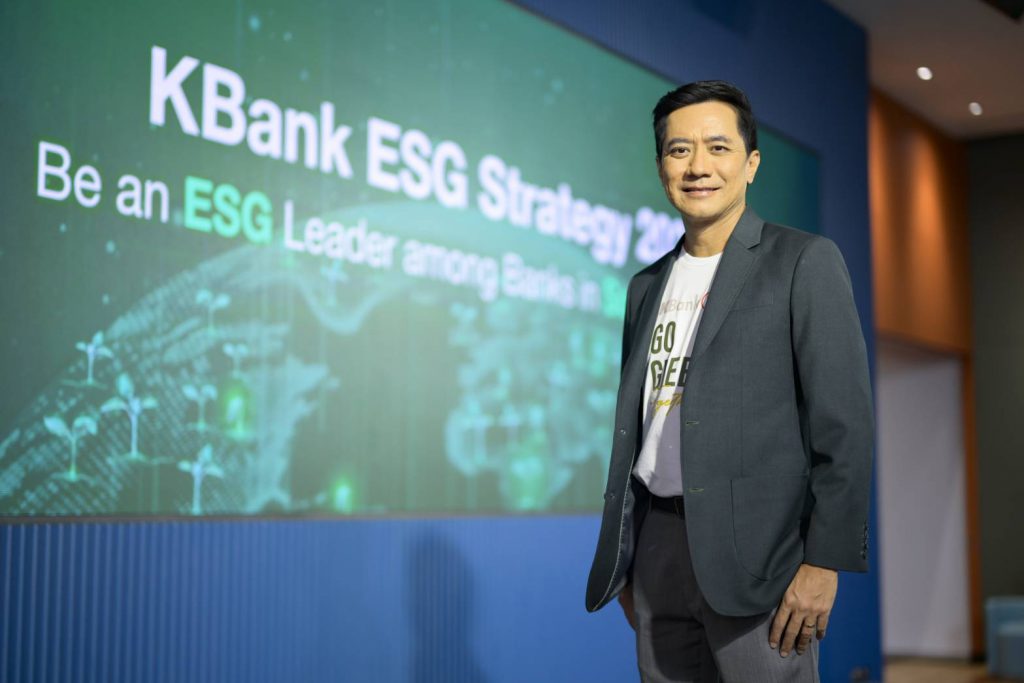
Mr. Krit Jitjang, KBank President, noted, “Of late, more and more businesses worldwide have embraced sustainability. As evidenced, consumers have shown behavioral changes towards ESG-related consumption, while investors are using ESG risk as a key factor in their investment decisions. Moreover, regulators both at home and abroad have implemented ESG-related measures that businesses must comply with. Any businesses failing to adjust now will incur higher costs, whether in terms of investment or expenses for product and service development, which will inevitably jeopardize their competitive capabilities. However, those who can efficiently adjust themselves in step with this trend will benefit from these abounding opportunities.
KBank has operated its businesses in accordance with the principles of a Bank of Sustainability. Recognizing both the priorities and opportunities for the Thai economy, KBank has announced the KBank ESG Strategy 2023 that maps out business strategies based on ESG principles, focusing on systematic operations, evaluation of results and operational development in alignment with international principles and standards. With the aim of becoming an ESG leader among banks in Southeast Asia, KBank is committed to empowering its customers and Thai businesses in the drive towards sustainable growth. The Bank’s business plans and goals in various dimensions are as follows.
Environmental dimension: KBank has unveiled its Net Zero Commitment in its operations (Scope 1 and 2) and financed portfolio (Scope 3). In 2022, the Bank’s major initiatives are as follows:
Adjustment of operational processes (Scope 1 and 2) to reduce greenhouse gas emissions, e.g., gradual replacement of the Bank’s fleet with EVs, and solar rooftop installation at branch offices owned by KBank. In the first half of 2022, greenhouse gas emissions were cut by 13.52 percent (compared to the base year of 2020). The Bank is committed to achieving net zero in its own operations (Scope 1, 2) by 2030.
Operations to achieve net zero emissions in KBank’s financed portfolio (Scope 3) – Such operations include evaluation of greenhouse gas emissions in KBank’s loan portfolio and study of feasibility and complexity of adjustment in the context of Thailand for sector prioritization. In 2022, KBank has conducted an assessment and formulated the Sector Decarbonization Strategy for three industrial sectors, namely, power generation, oil & gas, and coal, which altogether account for approximately 27 percent of the Bank’s portfolio emissions. KBank is now preparing to join forces with customers in other important industrial sectors in order to achieve net zero emissions in line with Thailand’s aspirations.
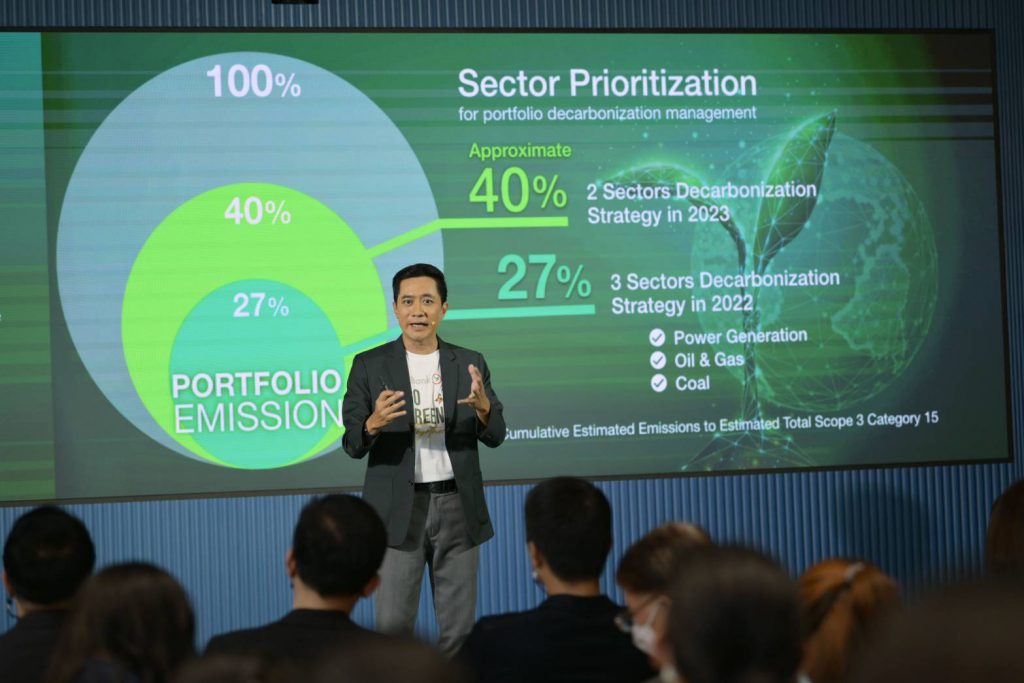
Sustainable financing (loan) and investment support: KBank has so far provided more than Baht 16 billion in sustainable financing and investment during 2022 and is preparing to steadily allocate a total of Baht 200 billion in sustainable funding to accommodate the drive towards a green economy by 2030.
Development of services beyond financial solutions by integrating technologies and collaborating with strategic partners throughout the supply chain. KBank has introduced and promoted projects that go beyond financial services to help customers gain easier access to the green lifestyle such as SolarPlus, free solar rooftops for the public, and EV bike rental, which aims to promote the use of electric vehicles and help low-income riders to get jobs. KBank will press ahead with the expansion of these solutions to more customers in the near future.
Social dimension: KBank has formulated the financial inclusion and financial/cyber literacy strategy through improvements of the credit underwriting process with risk-based offerings, affordability assessment, cost effectiveness, and collection & recovery, and collaboration with partners by leveraging technological expertise for the provision of loan services. Concurrently, KBank has offered customers knowledge to enhance their competitiveness towards sustainable growth. Related operating results and goals are as follows: .
Building financial inclusion for small-pocket customers such as individuals who earn no more than Baht 30,000 per month and may not have a payroll account, as well as the self-employed, who do not have documents to verify their earnings. KBank will use other data to consider approving loans for such individuals. KBank will also offer financial inclusion to business customers with earnings of not more than Baht 2.5 million per year. As of September 2022, KBank extended over Baht 23 billion in loans to more than 500,000 small-pocket customers. A target has been set to offer loans to 1.9 million small-pocket customers by 2025.
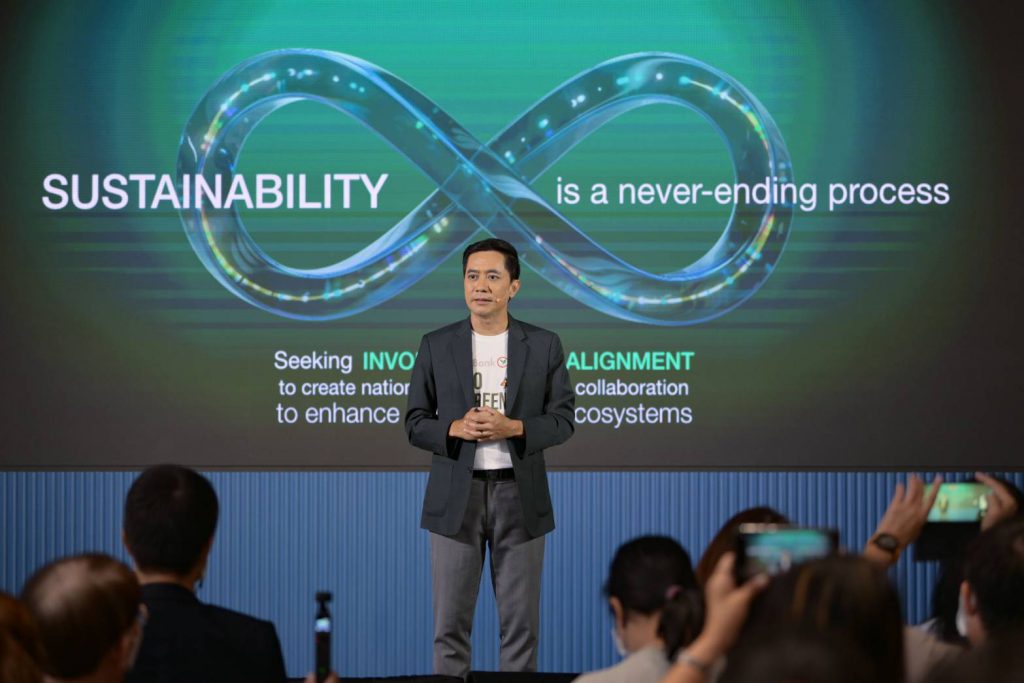
Providing financial literacy and cyber security by introducing communication campaigns with the aim of creating understanding and awareness among 10 million customers by 2023.
Prioritizing customer data security and privacy by protecting customer assets, providing secure services, and ensuring care & firmly response. The Bank also focuses on efficient service delivery, risk management and comprehensive supervision of service standards.
Governance dimension: KBank has placed emphasis on the ESG criteria to ensure that its loan approvals will not have negative impacts on the economy, society or environment. The Bank determined that 100 percent of project finance and medium enterprises and above loans must be processed through the ESG assessment procedure. As of September 2022, total loans approved based on the ESG risk assessment amounted to more than Baht 340 billion.
Along the way that KBank has applied the ESG principles in every operational process, there have been major challenges in management issues that must be considered in various dimensions. Therefore, the key focus to drive business in accordance with the principles of a Bank of Sustainability is to maintain balance in management with backup plans in place in order to be ready to cope with changes.
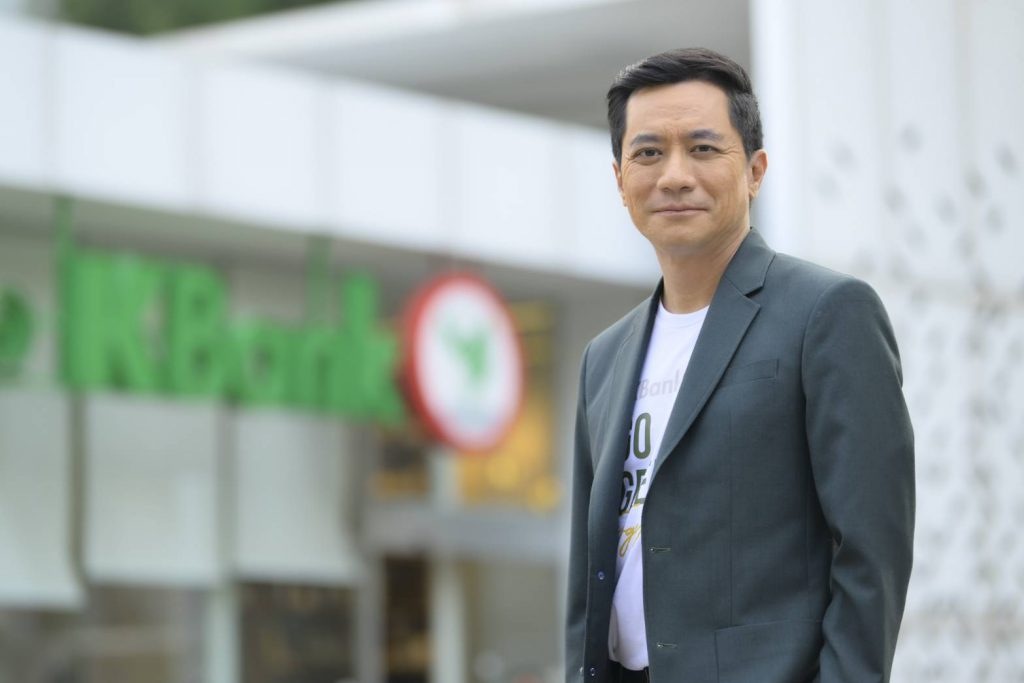
Mr. Krit noted in closing, “Banks play a crucial role in the economic system, so it is our mission to continue doing this with greater efforts and higher standards. All sectors are invited to take collaborative action, because sustainability is a never-ending task and cannot be done by just one party. We are determined to become an ESG coordinator through potential synergies in technologies, business partners and collaboration with key sectors in the ecosystem, driving our customers, the society and the nation towards sustainable growth.”
